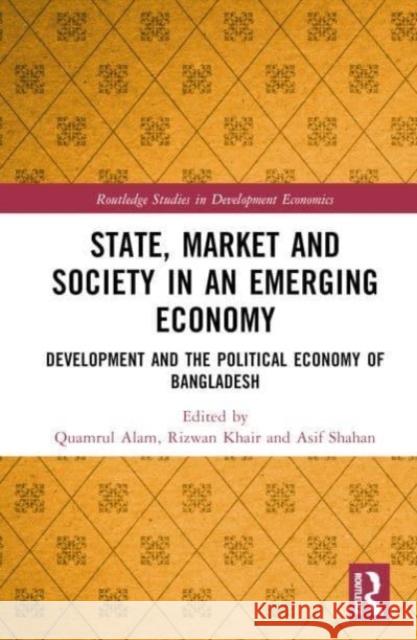State, Market and Society in an Emerging Economy: Development and the Political Economy of Bangladesh » książka
State, Market and Society in an Emerging Economy: Development and the Political Economy of Bangladesh
ISBN-13: 9781032331614 / Angielski
State, Market and Society in an Emerging Economy: Development and the Political Economy of Bangladesh
ISBN-13: 9781032331614 / Angielski
(netto: 741,76 VAT: 5%)
Najniższa cena z 30 dni: 730,42
ok. 22 dni roboczych.
Darmowa dostawa!
The economic and social development that Bangladesh has achieved in the last two decades has made Bangladesh a ‘Development Paradox". This book tries to explain this paradox through political economy lens. The book explains the linkages between the state, changing society and emerging private sector and examines whether the social transformation taking place in Bangladesh has the potential to live up to the expectations of a middle-income country. The first part of the book unravels the myriad relations between the state, society, and market to project the aspirations of a newly independent nation. It analyses how political turmoil, militarisation of politics, politicisation of institutions, reforms initiatives, industrial and social development policies, and the power nexus influenced the nature of the political economy of Bangladesh. The book goes on to examine how domestic appetite for capital and raw materials, the digital revolution, and the capacity of the local market to absorb expanded economic activities have created an environment that catalyses innovation and entrepreneurship. The book also explains how the country has attempted to transform from an agrarian to a manufacturing-based economy with rapid growth in the ready-made garment industry, pisciculture, pharmaceutical industry, and ICT sector. The Bangladesh journey from an emerging economy to its drive towards a developed country would interest those researching on development economics and those in policy making.
The economic and social development that Bangladesh has achieved in the last two decades has made Bangladesh a ‘Development Paradox". This book tries to explain this paradox through political economy lens. The book explains the linkages between the state, changing society and emerging private sector and examines whether the social transformation taking place in Bangladesh has the potential to live up to the expectations of a middle-income country.
The first part of the book unravels the myriad relations between the state, society, and market to project the aspirations of a newly independent nation. It analyses how political turmoil, militarisation of politics, politicisation of institutions, reforms initiatives, industrial and social development policies, and the power nexus influenced the nature of the political economy of Bangladesh. The book goes on to examine how domestic appetite for capital and raw materials, the digital revolution, and the capacity of the local market to absorb expanded economic activities have created an environment that catalyses innovation and entrepreneurship. The book also explains how the country has attempted to transform from an agrarian to a manufacturing-based economy with rapid growth in the ready-made garment industry, pisciculture, pharmaceutical industry, and ICT sector.
The Bangladesh journey from an emerging economy to its drive towards a developed country would interest those researching on development economics and those in policy making.











